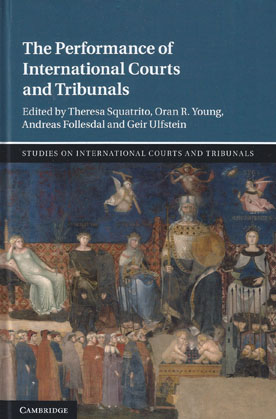
International courts and tribunals now operate globally and in several world regions, playing significant roles in international law and global governance.
However, these courts vary significantly in terms of their practices, procedures, and the outcomes they produce. Why do some international courts perform better than others? Which factors affect the outcome of these courts and tribunals?
The Performance of International Courts and Tribunals is an interdisciplinary study featuring approaches, methods and authorship from law and political science, which proposes the concept of performance to describe the processes and outcomes of international courts.
It develops a framework for evaluating and explaining performance by offering a broad comparative analysis of international courts, covering several world regions and the areas of trade, investment, the environment, human rights and criminal law, and offers interdisciplinary accounts to explain how and why international court performance varies.